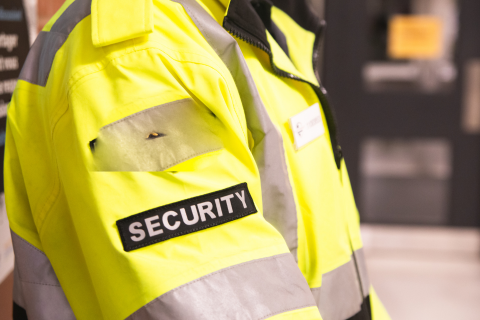
Dr Lisa Stephen
Updated: September 2024
CONTENT WARNING: Disturbing content about sexual violence
September feels so bittersweet for moms of college students! We’ve just finished preparing for the big college move-in day. We’ve made sure our kids have all that they need when they arrive on campus. It feels like just yesterday that I dropped my own kids off at college, excited for them to start the next chapter of their lives. But are YOU prepared? As the first semester begins, it is a crucial time for moms to know the facts about college safety so they can best prepare themselves and their kids for college life. College campuses can be very unsafe. That is simply the truth.
National Campus Safety Awareness Month
In 2008, Congress passed the National Campus Safety Awareness Month Act to implement sexual violence prevention in colleges and universities. Every September, campuses across the U.S. offer trainings, panel discussions, and other events to engage students and faculty in the conversation.
The Clery Act
In 1986, Jeanne Clery was raped and killed in her college dorm room at Lehigh University. According to the Los Angeles Times, the vice president of student affairs said that security measures were “more than adequate, reasonable and appropriate for our setting and our situation. You can’t prevent everything from happening.” Jeanne’s parents, Connie and Howard Clery, were not going to accept that answer. Instead, they made it their mission to create meaningful change.
In 1990, the Jeanne Clery Disclosure of Campus Security Policy and Campus Crime Statistics Act was signed. The Clery Act requires that all colleges and universities report campus crime data and support survivors when they come forward. Some requirements that campuses have to adhere to include:
- Providing annual security reportings, including criminal offenses, hate crimes, Violence Against Women Act offenses, and arrests and referrals for disciplinary action
- Rights, options, and resources for survivors of sexual assault including a written explanation of their rights and access to counseling and legal services
- Prevention education such as bystander intervention and risk reduction trainings to students and employees

You can find campus crime data on each college’s Annual Security Report, which should be available on each school’s website. You can also use this online tool to search for statistics.
What happened to Jeanne Clery in 1986 was a horrific tragedy to say the very least. It is important to know what is happening now on campuses across the country. Sexual violence refers to manipulated or forced sexual acts onto another person without their consent. According to the Rape, Abuse & Incest National Network:
-
- About 26% of females and about 6.8% of males experience sexual violence as undergraduate students
- Almost 80% of female student survivors and about 68% of nonfemale student survivors don’t report to law enforcement
- More than 50% of sexual violence incidents occur in August, September, October, or November
The Clery Center
 The Clery Center was founded in 1987, one year after the tragedy and three years before the Clery Act was officially passed. It is a nonprofit organization co-founded by Connie and Howard Clery that helps colleges and universities uphold the requirements of the Clery Act. They offer webinars, consultations, and free resources to help make campuses safe. The Clery Center also works with policymakers to pass legislation that helps prevent campus violence. Some recent examples include changes to Title IX (2020) and working with StopHazing and HazingInfo to get the Stop Campus Hazing Act passed.
The Clery Center was founded in 1987, one year after the tragedy and three years before the Clery Act was officially passed. It is a nonprofit organization co-founded by Connie and Howard Clery that helps colleges and universities uphold the requirements of the Clery Act. They offer webinars, consultations, and free resources to help make campuses safe. The Clery Center also works with policymakers to pass legislation that helps prevent campus violence. Some recent examples include changes to Title IX (2020) and working with StopHazing and HazingInfo to get the Stop Campus Hazing Act passed.
Final Thoughts
“The best education in the world is useless if a student doesn’t survive with a healthy mind and body.”
– Connie and Howard Clery
That quote stops me in my tracks each and every time I read it. The faces of all the students I’ve worked with over the years just flash through my mind; all the people I tried to help recover from their traumatic college experiences. This fuels my passion to work with moms and college students to help them be prepared for the behind-the-scenes challenges of college life. All the late nights studying, academic growth, and the fun of college extracurriculars don’t matter if our kids aren’t safe.
Knowing the challenges (big and small) your child is likely to face in college is just as important as getting them there, if not more. Knowledge is power if you use it to prepare. I encourage moms to educate themselves about the realities of college life, talk with their children about what to expect, and plan ahead for how to support them. My COLLEGE UNCOVERED Toolkit can help!
